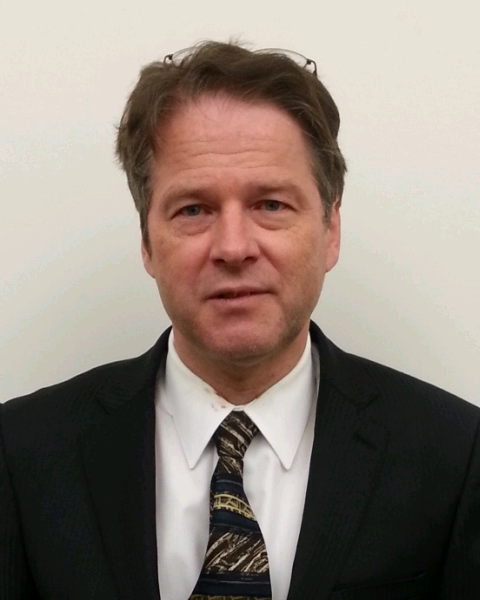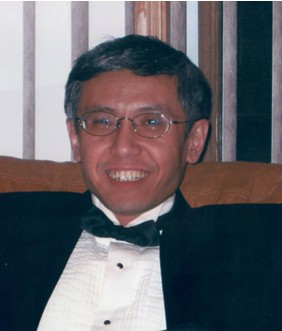|
又到了美国大学入学申请作文(essay)的收官季节。百分之八十的作文都是中性的,对申请不起什么作用;而差的作文却会断送你的名校之路!如何才能让你的作文为你的申请加分?请看看这三位2019级哈佛新生的背景和他们的作文。
|
|

-
原籍: 美国麻州
-
高中: 公立高中,306 毕业生
-
民族: 亚裔
-
性别: 女性
-
GPA: 3.95 out of 4.0 SAT / ACT: n/a
-
SAT2: n/a
-
课外活动: Model United Nations president, Working to Help the Homeless president, Belmontian (community service club) secretary, Speech and Debate founder and president
-
Awards: AP National Scholar, Belmont High School Book Award, Belmont Latin Book Award, high honor roll
-
专业: Psychology
“Ut Italiam laeti Latiumque petamus"
“Sandra, would you mind reading the next few lines and translating them for us?"
The professor glanced at me, a kind glimmer in his bespectacled eyes. I gulped. I was in a classroom of eighteen, five of whom were high school Latin teachers. And I was supposed to recite and translate Livy's Ab Urbe condita — with elisions! After fumbling through a few words and mistaking a verb for a noun, I finished the first sentence. I skimmed the second line, looking for the main verb. Singular. I searched for a singular noun and pieced the two together. Then, I noticed an accusative and added it as a direct object. As I continued, a burst of exhilaration shot through my body. My eyes darted across the page, finding a verb, a noun, and objects. I reached the end of the passage and grinned, relief pulsing in my veins.
"Very good!" The professor beamed at me before selecting his next victim.
A few months ago, I never would have imagined myself sitting in Harvard's Boylston Hall this summer for six hours a week, cherishing the ancient literature of Rome. Even though the professor decided I was eligible for the course despite not taking the prerequisite, I was still nervous. I worked hard in the class, and it reminded me just how much I love the language.
Translating has always given me great pleasure and great pain. It is much like completing a jigsaw puzzle. Next, I look for phrases that connect the entire clause — does this adjective match this noun? Does this puzzle piece have the right shape? The middle of the sentence is the trickiest, full of convoluted dependent clauses, pieces colored ambiguously and with curves and edges on all four sides. I am sometimes tangled in the syntax, one of the worst feelings in the world. After analyzing every word, I try to rearrange the pieces so they fit together. When they finally do, I am filled with a satisfaction like no other. Translating forces me to rattle my brain, looking for grammatical rules hidden in my mind's nooks and crannies. It pushes my intellectual boundaries. No other language is as precise, using inflection to express gender, number, and case in just one word. When I pull apart a sentence, I am simultaneously divulging the secrets of an ancient civilization. Renowned scholars are telling the stories of their time through these words! No other language is as meticulous. Every line follows the same meter and the arrangement of every word is with a purpose. The story of Pyramus and Thisbe includes a sentence where the word "wall" is places between the words "Pyramus" and "Thisbe" to visually show the lovers' separation. Translating is like life itself; the words are not in logical order. One cannot expect the subject of a sentence to appear at the beginning of a clause, just like one cannot plan the chronology of life. Like the delayed verb, we do not always know what is happening in our lives; we just know it is happening.
When translating we notice the nouns, the adjectives, and the conjunctions just like we see the people, senses, and connections of our lives. However, we often do not know what we are doing and ask ourselves the age-old question: Why are we here? Perhaps we are here to learn, to teach, to help, to serve, to lead, or just to live. We travel through life to decide what our purpose is, and it is that suspense and our unknown destinies that make the journey so irresistibly beautiful. I feel that same suspense and unknown when I translate, because I am beautifully struggling to unlock a past I know very little of. It is unbelievably exhilarating.
Thus, I question why others consider Latin a dead language. It is alive in all of the Western world. The Romance languages of French, Spanish, and Italian all have Latin origins. Without Latin, I would not be able to write this essay! It is alive in the stories it tells. You may see an apple and associate it with orchards, juice, pie, and fall. When I see an apple, I think of the apple of discord thrown by Eris that ultimately caused the Trojan War. This event, albeit destructive and terrifying, leads to the flight of Aeneas and eventually, his founding of Rome.
I study Latin for its rewarding return, incredible precision, intellectual challenge, rich history and culture, and deep influence on our world. I study Latin to show others how beautiful it is, to encourage the world that it should be valued. I study Latin to lead our society, like Aeneas did, toward a new city, a new dawn where everyone appreciates a mental trial of wits, everyone marvels at a vibrant past, and no one wonders whether Latin is dead or not.
桑德拉的论文最引人注目的不是她与高中拉丁老师一起上课,或是她上了哈佛的暑期班,而是桑德拉在翻译拉丁语时深入思考的过程。从她描述翻译过程的生动细节中可以看出,她相当认真地对待翻译,阅读这样的充满热情的申请文书让人愉悦。
话虽这么说,有时在不需要的时候,桑德拉的作品似乎故意使某些东西引人入胜。例如,“一个人不能期望句子的主语出现在从句的开头,就像一个人不能规划生活的时间顺序。”似乎是有意用诗意的句子,来表达桑德拉的主张:“翻译就像生活本身一样。”总的来说,这个比喻是可行的,但不应该以迎合的方式在作文中大肆宣扬。如果你写出自己热衷的东西,那应该自然而然地在你的写作中流露出来。
-
原籍: 美国新泽西
-
高中: 私立高中, 130 毕业生
-
民族: 亚裔
-
性别: 男性
-
GPA: 4.0 out of 4.0 SAT / ACT: R: 770, W: 750, Math 800
-
SAT2:Math2, Chem, US History
-
课外活动:Varsity Soccer, Orchestra, Finance organization
-
奖项:Cum Laude Major: Applied Math
I stood frozen in the produce aisle at ShopRite, wondering which of the five varieties of oranges to buy. Valencia, blood orange, organic, Florida navel – what were the differences? When I asked my mom which variety she was looking for, she responded curtly, “It’s your choice. Pick what you want.” The thing was, I didn’t know what I wanted.
For my parents, this level of freedom – even in the orange section of the grocery store — is somewhat unique to the United States. The lingering policies of the Cultural Revolution in 1970s China dictated life choices for my parents; growing up in poverty, their families’ sole concern was putting food on the table. As a result of economic disadvantage, higher education became my parents’ life goal. “If I didn’t make it to college,” my dad told me, “I would have been trapped in that godforsaken village for the rest of my life” (only one-tenth of his high school ever made it). My parents didn’t have a choice: my mom’s entire life revolved around studying, and my dad was spanked into shape at home. Sports, music, or entertainment were out of the question – my parents’ only option was to work hard and dream of a choice in America.
The miraculous thing is that my parents, having no freedom of choice for the better part of twenty years, still had the vision to grant me choice in the United States. Unfortunately, this is not common, even in our beloved land of opportunity. All I have to do is talk to my closest childhood friends - children of other Asian-American immigrants – to see the glass walls that cultural and familial expectation have erected around their lives. For some of them, playing the piano is an obligation, not a hobby, and medical school is the only career option.
Oddly enough, I had always felt a bit left out when I was younger – why weren’t my parents signing me up for American Math Competitions and middle school summer research programs, when all my friends were doing them? I’ve come to realize, though, that having the choice to do the things I’m interested in brings out an enthusiasm I can explore passionately and fully. My many hobbies – playing soccer with our neighbor in my backyard, fiddling around with Mendelssohn on my violin, or even talking to my friend about our latest stock picks – all have come from me, and I’m forever grateful to my parents for that.
The contrast between my parents’ lives and mine is shocking. In the United States, I have so many paths available to me that I sometimes can’t even choose. I don’t even know what kind of oranges to buy, yet oranges – or any other fruit - were precious delicacies to my dad as a child. I can dream of attending a school like Harvard and studying whatever I want, whether it be math, economics, or even philosophy or biochemistry – a non-existent choice for my parents, who were assigned majors by their universities. I can even dream of becoming an entrepreneur, which I see as exploration and self-destiny in its purest form. I can be sure that wherever my true passions take me, my parents will support the choices that I make, as they have for seventeen years.
Most importantly, though, I value that Harvard, with its centuries-long devotion to educating the full person, fosters the same sense of choice for its students that I have come to so deeply appreciate in my parents. I am exhilarated to have the freedom to define my own academic journey and, looking forward, for this upcoming four-year odyssey to lay the groundwork for a lifetime of exploration. For me, thankfully, it’s all possible - but only because of the sacrifice and vision of my parents.
Kevin凯文的文章始于一则生活轶事,这是一种行之有效的吸引读者注意力的方法。通过在商店中选择橘子的生动场景, 凯文将读者带进他的主题。
提及他父母的辛酸史,凯文感恩他们的努力, 进而对“贫穷”、“教育”这类全球性的问题有进一步的深思。这不仅仅限于字面上的表述,而且还体现在他的心态上。在这里,我们看到凯文反思自己的童年,他最初对不能像其他孩子那样而感到困惑,最终他认识到自己独特的机会,并心存感激。凯文进一步表达追求兴趣的自我意识,这是一个很坚定的选择,因为许多大学都希望招收富有好奇心的学生。
凯文在文章结束时,他明确表示,他将充分利用大学的学习机会。同样重要的是,他对自己所申请学校的价值心存感激。凯文以热情洋溢、成熟的音符结束他的作文,预示他将在校园里学习将会是一个积极向上的学生。
-
原籍:汉城,韩国
-
高中:私立高中, 400毕业生
-
民族:亚裔
-
性别:女性
-
GPA: 4.0 out of 4.0
-
SAT / ACT: Reading 800, Math 800, Writing 720
-
SAT2:Mathematics Level 2, Chemistry, Physics
-
课外活动:Research in greater horseshoe bats at Wildlife Ecology and Conservation Genomics Lab (Kangwon National University), Korean archery club founder and president, Dream and Act Volunteer Club vice president, mock trial
-
获奖:Ji In Yong award (given to the best student of the year), third prize in National Youth Korean Archery Championship, U.S. National Merit Scholarship semifinalist
-
专业:Integrative Biology
Language is not the sole domain of humans. Animals also talk, and over the last few years I have been fascinated by learning two new languages that even foreign language school students have never heard of. Studying animal languages is very different from learning Korean, Chinese, or Spanish. There are always dictionaries to refer to when I learn human languages, but when learning animal languages I don't have a Google translator to spit out satisfactory answers. In fact, I have to use my own judgment, which combines my mind, heart, and instinct to interpret what I hear.
Tree frogs, specifically Japanese tree frogs and Suweon tree frogs, use songs not just to express their amorous intentions but to survive. While these two species may look physically identical, they are sexually incompatible. So in order to lure the right female, male frogs sing serenades that are distinguishable from other species. Analyzing these serenades at an ecology lab with spectrograms and waveforms, I decoded every pulse of sounds emitted by these ravenous tree frogs into the patterns of numbers to let humans understand their lyrics.
Unlike frogs' mating songs, bats use language not only to communicate but also to navigate and locate insects at night. While flying, bats shoot out biosonar sounds and listen to the echoes that bounce off obstacles to grasp the world around them. Visualizing a world just with sound, I was enchanted by their invisible language when I studied the Greater Horseshoe bat's supersonic echolocation at a wildlife conservation lab. When bats cast nets of invisible words every millisecond during free flight and ziplining experiments, we captured and revealed their dialogue that had neither conjugations nor grammar.
After eavesdropping on tree frogs' and bats' conversations, I discovered that they use languages for survival. The language of the frogs exemplifies power — the stronger and bigger a frog is, the louder it can sing, scaring off all its prey and bravely exposing itself to predators. And for bats, their invisible language is their vision. They silently scream out for help and listen carefully as nature's echoes guide their path. In a sense, animals communicate with other species and with nature.
On the other hand, humans have developed esoteric words, convoluted sentences, and dialects to express their sophisticated ideas and feelings. This amazing evolution has, I believe, isolated us from nature. Now we prefer to live away from wildlife, tending to communicate only among other Homo sapiens sapiens through texts, tweets, and e-mails. Taking a page from Dr. Dolittle's pocket diction, I hope that my work helps us broaden our anthropocentric minds and understand animals who also share our biosphere. If our souls are reconnected with nature, maybe we could hear Mother Nature whisper some secrets about her mysteries that we are too wired or unaware to heed.
Early explorers boldly left the comforts of their homeland to learn the languages and traditions of other cultures. Due to their dedication, these self-taught bilinguals were able to bridge cultures and share values between different communities. In the same way, I want to take risks in learning to communicate with other species beyond human beings and become a multilingual biologist who connects human and animal realms. I wish to venture into the animal kingdom and become a pioneer in mastering and sharing nature's occult dialects with our species. When we finally learn to comprehend and harmonize with nature, we humans might become more humane.
萨曼莎(Samantha)首先申明,在大学申请文书中讲述她对动物语言的研究可能非常困难。她的文书揭示了这种极其独特的学术兴趣,同时也描绘了她所认知的动物和人类语言之间的关系和内在联系。
由于在大学申请文书中讨论学术问题不是一个好主意,萨曼莎编织了一个结合了学术知识和自我反省的故事。此外,她没有写自己对科学或生物学的兴趣,而是写了一个非常特殊的,需要学术背景的科学领域。同样,她专注于提供有关该主题的见解,就像她对该主题本身的学术细节一样。
萨曼莎有力而清晰描述了自己的兴趣,由此而吸引了读者。她以人文主义的语言来构筑动物语言,例如当她以“连词和语法”的形式谈论蝙蝠的语言时,使这篇文章显得格外出色。她在文章的结尾处进一步将二者作比较,提出有关人与动物之间的脱节,以及她将来希望重新将两者联系起来的愿望。尽管独特的主题本身很可能会引起听众的注意,但萨曼莎所表达的思考和继续学习该主题的愿望让读者更加着迷。
https://www.thecrimson.com/sponsored/article/successful-harvard-essays-2019-10/
|







